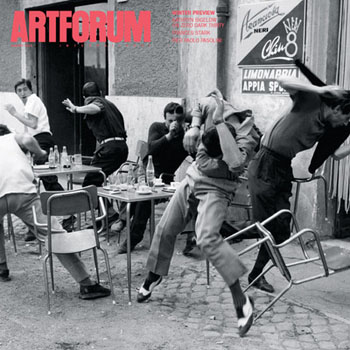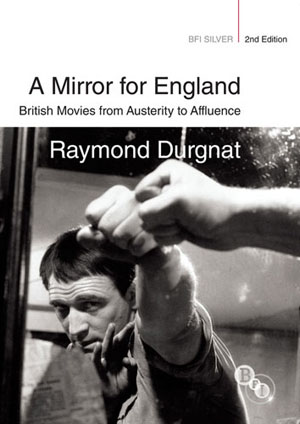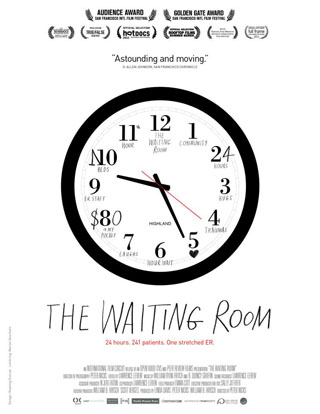As 2012 came to a close, the Observer announced that Philip French, its film critic for 50 years now, had been awarded an OBE, which I knew to be a fine honor indeed. Still, I had to look it up. The title means he’s an Officer of the Most Excellent Order of the British Empire. Impressive. At any rate, on Saturday, he posted passages from five reviews he’s written over the years and added: “Thirty years ago, the majority of us thought that movie critics would soon be following saddlers and harness-makers into oblivion. Luckily that hasn’t proved the case in a world where films are more widely available than ever, are taken more seriously and are so well entrenched culturally that we no longer need to describe the products of the 10th muse as the new rock’n’roll. My successors will inherit a profession with a remarkable past and an assured future.” Encouraging words for the beginning of a new year.
The new Artforum, the one with Patrick Rumble‘s essay on Pasolini we pointed out a couple of weeks ago, also features a collection of remembrances of Chris Marker. Two are online, Lucy Raven‘s (she focuses on Letter from Siberia [1957]) and Patrick Keiller‘s: “I first saw La Jetée (1962) in January 1969, in a late-night program that was, I think, part of some longer event in which the films weren’t individually listed, so that it came as a complete surprise. I was an architecture student, and while it never occurred to me to make anything like a film until ten years later, I very often recalled Marker’s extraordinary work; when I did attempt some cinematography, it was the form of La Jetée that encouraged me. If I hadn’t seen it when I did, it’s quite likely I would never have made any films, so while I would never wish to implicate Marker in anything, I owe him a great deal: the thought to begin; the realization that one can work simultaneously in word and image; and, later, the idea to make a film about the city in which I lived, which struck me quite suddenly while watching Le Joli Mai for the first time, in July 1989. I’m always surprised at how few people are or have been at once imagemakers and writers. Marker was writer, photographer, and cinematographer. I can’t think of anyone else who has explored the reciprocity of images and words to such effect.”
Catherine Grant‘s got an essay in the new issue of Mediascape, “Déjà-Viewing? Videographic Experiments in Intertextual Film Studies.”
I didn’t know that Mark Fisher‘s been tumbling for nearly a year now. He’s recently posted two pieces that originally appeared in Film Quarterly, one on dystopias and the other on David Cronenberg’s eXistenZ (1999).
From Criticwire‘s Matt Singer comes word of two new publications. The Completist is Keith Uhlich’s personal encyclopedia, an “attempt to write about every piece of work by a given cinematic artist—primary emphasis on directors, though with an eye to other disciplines (e.g., cinematographers, composers, performers, screenwriters, possibly critics and commentators) as well.” And Keith’s just begun work on the first entry, “Andrei Tarkovsky.” Sam Fragoso’s Movie Mezzanine: “With writers based all around the globe we offer a unique perspective on the art form that connects us all: the movies.”
BFI Silver’s re-release of A Mirror for England: British Movies from Austerity to Affluence has sparked a few thoughts on Raymond Durgnat from David Davidson.
“From Greece to Ireland, where political leaders have been reduced to glorified accountants, audiences have made a series about a peripheral EU administration the most surprising television hit in years.” Fascinating piece from Jason Farago for n+1 on Borgen, “‘The Castle,’ a nickname for Christiansborg, the Copenhagen parliament building.”
At Not Coming to a Theater Near You, Rock Follies II, a collection of a dozen essays on “extravagant musical vanity projects” includes pieces on “the entire filmic oeuvre (to date) of The Once and Future Prince.”
Interviews. For Movieline, Jordan Hoffman talks with David Cronenberg, “a man who at this point seems physically incapable of tolerating bullshit.”
Mike Leigh tells the Guardian‘s Laura Barnett about revisiting his first feature, Bleak Moments (1971): “With such brief life experience, did I really invent this painful, tragic-comic tale of a beautiful but suppressed young woman, tied to her elder, mentally challenged sister? I guess I’m astonished at the maturity and sophistication of my achievement, not to mention its pathos and irony.”
Cinephilia & Beyond has come across an interview with Stanley Kubrick conducted by Michel Ciment when Barry Lyndon was released in 1975.
And then there are One+One Filmmakers Journal contributors James Marcus Tucker on queer theory and critiquing capitalism and Bradley Tuck on elitism.
DVD/Blu-ray. J. Hoberman recommends Criterion’s release of Hitchcock’s The Man Who Knew Too Much (1934): “Not to be confused with the tiresome 1955 Hollywood remake (best remembered for introducing Doris Day’s mind-numbing hit ‘Che Sera Sera’), the original and superbly economical Man set the comic sardonic tone for Hitchcock’s British thrillers. It’s also my favorite, even better than Sabotage—a crazy near-slapstick gleeful dark comedy that ends with a wild shoot-out and racks up a fairly outrageous body count. (Hitchcock was truly the Quentin Tarantino of 1935.)”
Related: Richard Brody on Kim Novak and Vertigo (1958).
New York. Amy Taubin for Artforum: “Enhanced cinéma vérité, Peter Nicks’s The Waiting Room drops us into the middle of the emergency room of Oakland’s Highland Hospital, which has become, by dint of our failed health care system, the primary care facility for a population of some 250,000 Californians, most of them without health insurance. We are, of course, like the director and his compact crew, merely observers. Nevertheless the thought occurs that, but for the grace of a regular paycheck with benefits or a substantial rainy day fund, there go you and me. Refusing didacticism, statistics, or analysis, The Waiting Room is, by virtue of the experiences it documents, an irrefutable argument for the necessity of universal health care, here and now.” Back at the IFC Center by popular demand. Through January 8.
Lubitsch‘s Ninotchka (1939) is at Film Forum through tomorrow, and Time Out New York‘s Joshua Rothkopf advises, “if you haven’t seen any of the German expat’s exquisite Hollywood output, start here.”
Palm Springs. With the festival opening tomorrow, Michael Guillén previews the Nordic Light program.
In the works. “Talk about getting the gang back together.” The Playlist‘s Kevin Jagernauth has the latest on Wes Anderson’s Grand Budapest Hotel. Moonrise Kingdom producer Scott Rudin, cinematographer Robert Yeoman, and composer Alexandre Desplat are all on board. And the cast features Tilda Swinton, Harvey Keitel, F. Murray Abraham, Mathieu Amalric, Edward Norton, Adrien Brody, Willem Dafoe, Ralph Fiennes, Jude Law, Saoirse Ronan, Jeff Goldblum, Bill Murray, Owen Wilson, and Jason Schwartzman.
Anderson’s told Deadline‘s Mike Fleming a bit more about the film: “It’s a combination of a couple of different ideas: one was this character I had in mind of this concierge. I was also inspired by the work of the writer Stephen Fry. I’d also been reading a lot about the Second World War; there’s a connection to the Holocaust in the movie and just a bit of European history on the first half of the 20th century and the regimes.”
More browsing? The Film Doctor‘s gathered links on filmmaking, the cinetrix is closing a few tabs, and Adam Cook‘s posted his weekly roundup in the Notebook.
Lists and Awards 2012: Index. For news and tips throughout the day every day, follow @KeyframeDaily on Twitter and/or the RSS feed. Get Keyframe Daily in your inbox by signing in at fandor.com/daily.






